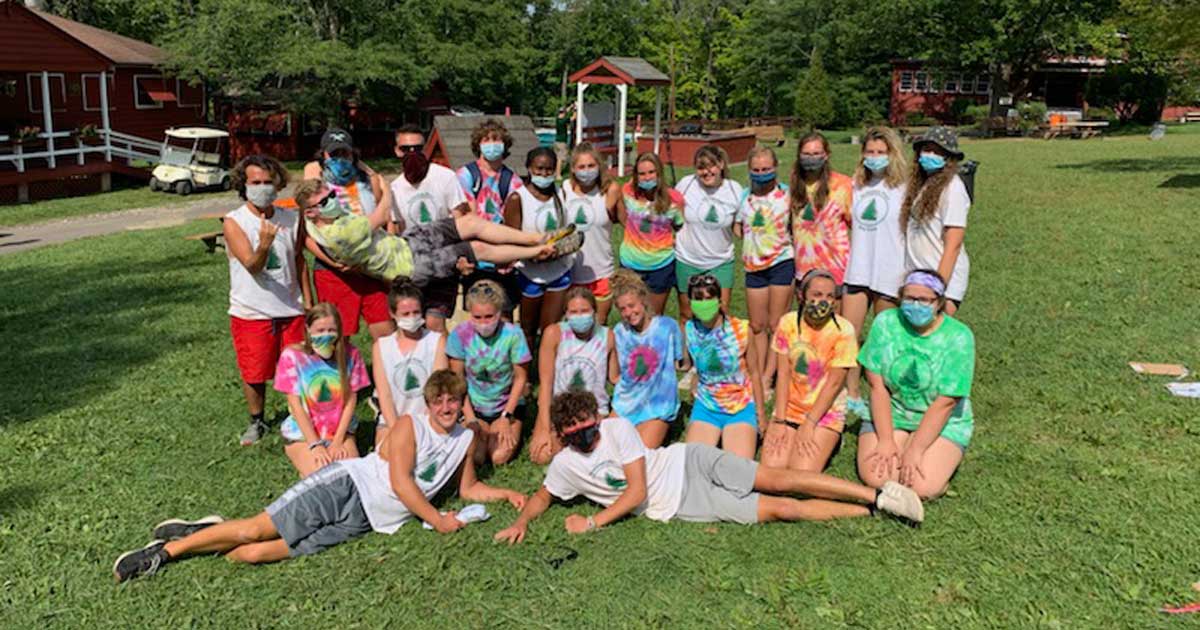Josh Weisman is the director at Perkiomen Pines Day Camp, located about an hour outside of Philadelphia. Josh successfully ran his day camp last summer, and as he thinks about the challenging combination of summer camp 2021 and COVID, he knows that many of the lessons he learned will be useful to his peers in the camp industry.
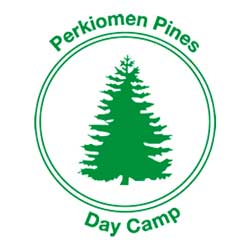
One thing that sets Josh apart from most camp directors is that he didn’t grow up attending camp—he married into the industry. Josh says that there are times when it’s clear that his lack of childhood camp experience is a detriment to his role, but he believes that there are benefits to it as well. “I don’t have that emotional attachment to certain camp traditions the way that my wife does, who spent every day of her life at camp,” he explains, “so I come to some problems with a clean slate.” This, he says, was invaluable in 2020.
Reflecting on last summer, Josh consolidates his advice for summer camp 2021 into these four approaches:
- Group campers based on their learning environment from this school year, and adjust activities based on this grouping
- Change how you communicate with parents and expect more concerns
- Give staff additional support both emotionally and programmatically
- Adapt your programs and schedules and incorporate what works beyond this year
While his success last summer is informing many of his decisions for 2021, Josh is quick to point out that 2020 was not definitive. His goal is to keep in the back of his mind things that worked, but not let that impact everything he does this summer.
Find out if campers learned virtually, in-person, or hybrid, and build your groups and programs around this information
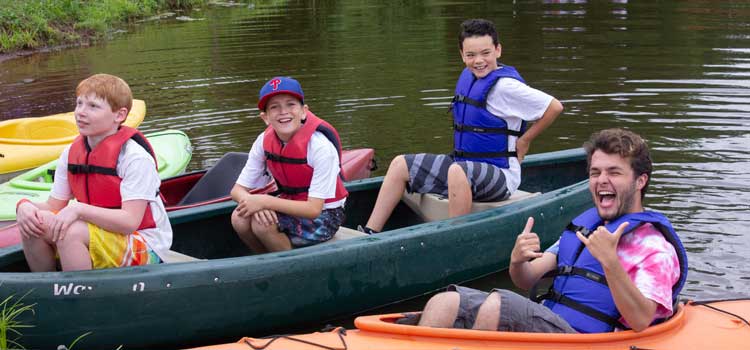
One thing Josh noticed at day camp last summer was that campers were behaving differently after spending the final three months of the school year learning remotely. Many were exhibiting behaviors expected of children slightly younger. He will be asking camp parents about their kids’ learning environments from this school year, and his purpose in doing so is to prepare himself and his staff for some of these differences.
Josh is also using this information to plan different types of activities that will suit campers based on their school experiences. “One thing we’ll do with the kids who learned virtually will be to engage in activities early on that build friendships,” he says. This includes more team-building activities earlier in each session. Instead of jumping right into kickball or zip-lining, campers will use the low ropes course and take on group art projects. “We want to give them more time for friendship building.”
A related lesson that Josh learned in 2020 was that campers needed more positive reinforcement. “They really needed someone to say to them, ‘you did a good job,’ even for mundane tasks.” Josh believes that his staff saw a lot of insecurity in campers bred out of not hearing this kind of feedback in school settings. When his team saw some poor behavior, they noticed that it switched significantly when they started being more positive with campers at day camp.
Increase parent communication and be prepared to deal with more concerns
Josh says that in a typical day camp summer, no news is good news. “We don’t want to over-communicate with parents,” he explains, “just enough that they get the basic information they need.” Heading into last summer, Josh took the opposite approach and encourages other camp directors to do the same.
Josh sent emails every other week beginning in early April. “I told them how our handbook was changing, how our policies were changing, how we were adapting, and what our expectations were.” He continued that through the summer, and says that this tactic was beneficial because the transparency gave him a “paper trail” to fall back on. If a parent got angry about something, Josh was able to respond and say, “we’re holding true to what we said we were going to do.”
Another experience Josh had in 2020 related to parent communication was a significant increase in the number of concerns. “Our parents were so overwhelmed with COVID, finances, and kids being home. We saw concerns that we wouldn’t normally see.” As a parent himself, Josh understands that this phenomenon wasn’t really about the small issues at camp, like a kid not passing a swim test on their first attempt. Rather, it was an overwhelmed parent feeling like this was just one more frustration, and needing an outlet for venting.
When it comes to summer camp 2021 and COVID, Josh encourages other camp directors to keep that in mind and not take everything personally. “There’s a natural instinct to win an argument,” Josh says, but in these situations it’s easier to say “thank you, I hear you, and I’ll circle back.” By then, he says, things will most likely calm down.
A related lesson that Josh learned in 2020 was that campers needed more positive reinforcement. Josh believes that his staff saw a lot of insecurity in campers bred out of not hearing this kind of feedback in school settings. When his team saw some poor behavior, they noticed that it switched significantly when they started being more positive with campers at day camp.
Don’t forget that your staff need new and additional support, just like campers
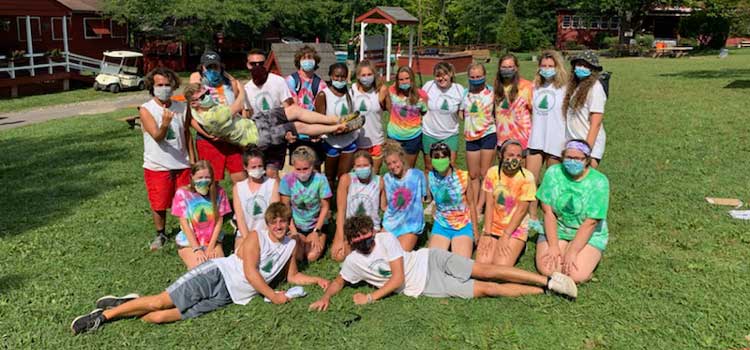
While focusing on campers’ needs, Josh was intentional about not overlooking counselors as well. His first approach to supporting staff in 2020 was extending orientation. This served two purposes; it helped counselors re-familiarize themselves to being around other people and it provided time and space for them to work out their fears and insecurities. “I wanted to make sure my staff had time to adjust and to build friendships among themselves,” he says.
Josh planned breakout sessions where staff were able to talk about fears, experiences they had, concerns about summer, and ways to stay safe. “You have to make sure your staff are in a good space,” Josh says, “because it’s going to be a more demanding summer for them as well.” In his extended orientation preparing for summer camp 2021 and COVID, Josh says he and his supervisors will also discuss how they can support staff programmatically, and intervene more frequently if it looks like a bunk or group is struggling with an activity.
Staff meetings take place twice a day at Perkiomen, first thing in the morning and at the end of each day. While this might not be logistically possible at all camps, Josh says there’s a real benefit to getting more time together as a team. “Having lots of touch points during the day is a way for me to course correct,” he says. In the morning he can get everyone in the right frame of mind, and at the end of the day it’s an opportunity to applaud someone for going above and beyond.
Make residential or day camp program changes and consider the long-term positive impact
The summer of 2020 tested Josh in many ways, but one refreshing by-product is that it forced him to adapt his programs. “Mask-wearing isn’t super ideal when it’s 95 degrees out in Mid-Atlantic humidity” he says, “so we changed our schedule.”
Instead of a single all-camp dining period, Josh scheduled three separate meal times, and campers ate outside under tents. He increased his two swim periods to four, so campers were more spread out. Instead of activities that might typically position two groups against each other in friendly competition, kids stayed in their pods. Josh says that many of these changes opened his eyes to the fact that his program needed some reworking. “Some of the things we had to change actually worked out well,” he says, “I used it as an opportunity to be flexible and it was liberating in an odd way.”
A different summer, but a similar story for summer camp 2021 and COVID
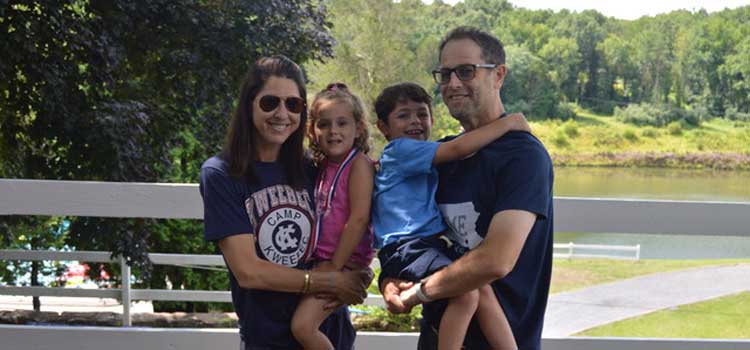
Josh says he always refers to camp as Mad Libs. “Every summer feels completely new and different,” he explains, “but when you look back, the nouns, pronouns, and verbs change, but the basic storyline is the same.” As he thinks back to last year, and the lessons he learned, this concept is helpful. There will absolutely be nuance and difference in 2021, but the story he was able to write last summer helps him believe that in many ways the camp experience will be the same.
Josh is going to let kids drive the summer, and he and his team will adapt to what they see. For some children, camp might be an escape and the pandemic won’t be something they want to discuss. Other campers may have been significantly impacted by COVID, and they’ll need a different kind of support. Ultimately, Josh will handle summer camp 2021 and COVID the way he approaches every summer—by treating each camper like they are his child. “I know the feeling of dropping off a kid, and I know parents are trusting me with the most important thing to them,” he says, “it’s not a responsibility I take lightly.”
